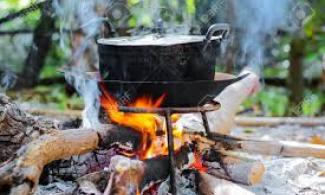
More than 90,000 Nigerian women and children die annually from firewood smoke.
The federal government has said that more than 90,000 people, mainly women and children, die annually from smoke and other complications from firewood.
The Minister for Environment, Sharon Ikeazor, disclosed that 70 percent of the Nigeria's population still depends solely on fuel wood in meeting their energy needs for cooking and heating.

This was said at the 2021 Nigeria clean cooking forum with which was tagged, “Clean Cooking Energy for All in Nigeria – Achieving the Nationally Determined Contributions (NDC).”
According to Ikeazor, “If current policies are allowed to continue; by 2030, 60 per cent or more of all households in Nigeria will still be cooking with traditional biomass. Dependency on biomass for cooking and or heating purposes increases pressure on local natural resources.
“It poses a threat to the health and safety of end-users, mainly women often accompanied by their children.
“More than 90,000 Nigerian women and children die annually from firewood smoke.”
She added that the practice leads to an equivalent of 5.4mt of CO2 (GFW) resulting from unsustainable wood harvesting, thereby reducing carbon uptake by forest.
She further explained that Nigeria’s residential sector also contributes over 50 per cent of national total emissions of Green House Gases.
“The use of cleaner, more modern cook stoves and fuels can dramatically reduce exposure to harmful smoke thereby improving the health of rural women, creating wealth, provide myriad economic opportunities for Nigerians and has important environmental and climate benefits,” she said.
The minister said the Federal Ministry of Environment has over the years supported the implementation of programmes on clean cooking to help Nigeria reduce its GHG emissions and also boost green growth.
Ikeazor said the federal government was making efforts to meet its Nationally Determined Contributions (NDC) obligations by ensuring that Nigerian households convert from the use of inefficient cooking fuels such as fuel wood, charcoal and kerosene to LPG and other efficient cooking fuels.
“That is why we have put together this forum, bringing together policy makers, civil society organisations, NGOs, academia, women groups, international partners for all to be well equipped with the right knowledge and tools to be able to develop strategies and plans that squarely address the issues of clean cooking,” she added.